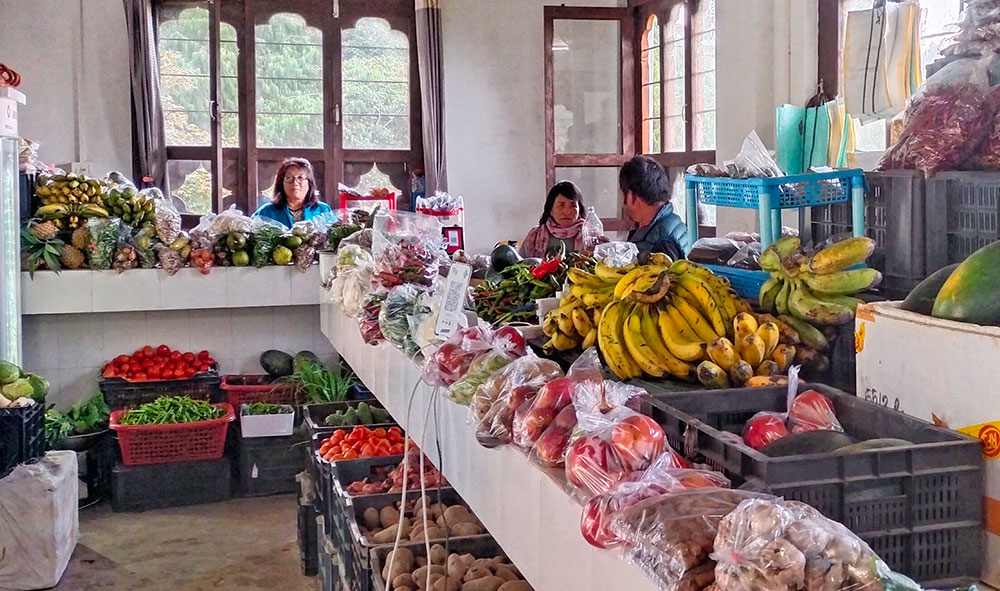Neten Dorji
In Wamrong, vegetable vendors are facing a unique challenge. While they make rounds to sell fresh, locally-grown vegetables, their produce is also wilting away on the stalls, right before their eyes.
The predicament unfolds on the top floor of the vegetable market shed beside the main Wamrong town, which has been designated for local products.
Here, shopkeepers don’t limit themselves to selling vegetables alone; they also offer various other commodities. This dual approach, however, has cast a shadow over the vegetable vendors’ business.
Vendor Rinzin Wangchuk, one of the vendors, shares his concerns, “Since they sell their products right at the entrance, we hardly get any customers here. We’re not against them selling commodities. But, if they stopped selling vegetables, it would allow customers to visit our stalls.”
Currently, there are three vendors in the vegetable shed, offering a mix of locally grown and imported vegetables and fruits from India.
Another vendor, Sonam Zangmo, expresses gratitude to the Dungkhag administration for providing a good space. However, she admits that the shopkeepers selling vegetables are discouraging business.
“Like the rest of the business operators in town, we are also liable to pay taxes. Sometimes it is difficult to even make Nu 100 a day because we don’t get any customers,” says Sonam Zangmo.
She points out that most of the shopkeepers operate similar businesses in the town, intensifying the competition and making it challenging for the vendors to thrive.
Tshendre, another vendor in the same location, reveals that the most she earned in a day was Nu 1,000, and that was an exceptional occurrence.
“Some shopkeepers even intercept farmers bringing vegetables to the market,” Tshendre explains. “When people don’t show up at the shed, most vegetables get spoiled. We cannot afford to throw mounds of vegetables away every second day.”
Aside from tomatoes and onions, the vendors at the shed also sell organic vegetables produced by farmers from Lumang, Khaling, Thrimshing, and Kangpara gewogs. During the off-season, they collect vegetables from other gewogs like Ramjar and Yangner.
Rinzin Wangchuk emphasizes, “We go door to door to collect vegetables, which benefits farmers directly. It would be better to act swiftly before farmers and vendors lose interest in selling local vegetables.”
In response to these challenges, the Regional Agricultural Marketing and Cooperative Office (RAMCO) has stepped in to support the maintenance work of the old vegetable shed.
The office has also provided two freezers to keep vegetables fresh.


